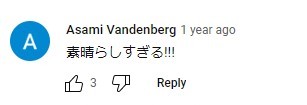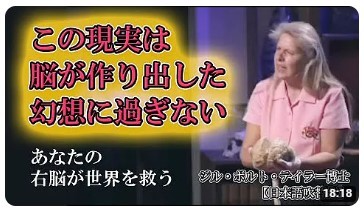すぎる (sugiru) Meaning Japanese Grammar - Over Do
Anna Baffa Volpe
Get in touch with meThe verb すぎる (sugiru) means to exceed, to surpass, to go beyond.
It can be used as single ordinary verb or combined with other verbs according to a particular structure we are going to analyze in this post.
How すぎる is formed
すぎる has its own kanji 過ぎる and it can be singly used in a sentence.
18歳を過ぎる。
Passing the age of 18.
嵐が過ぎた。
The storm has passed.
The particular structure we are introducing is used with verbs and adjectives.
How and when すぎる is used
すぎる is used in Japanese to indicate that the degree of actions or states is excessive and it goes beyond the ordinary state of things.
It is not always beneficial to overdo things, to exaggerate, so we find すぎる in sentences with a negative meaning or expressing undesirable states.
Sugiru with Verbs
The structure with Ichidan verbs is simple: we have to remove the kana る at the end of the verb and replace it with すぎる.
食べすぎる: eat to much
塩を入れすぎて、辛くなってしまいました。
I put too much salt in my food and it became too salty.
In the case of the Godan verbs, we have to change the last syllable from column う to the equivalent in column い and add すぎる.
飲みすぎる: drink too much
The irregular verb する becomes しすぎる.
注文しすぎて、全部食べられなかった。
I ordered too much food and couldn't eat it all.
このテーブルは場所を取りすぎると思う。
I think this table takes up too much space.
彼の最大の欠点はしゃべりすぎることだ。
His biggest flaw is that he talks too much.
やらなければならない事がありすぎる!
I have too much to do!
From a Japanese YouTube video
食べ過ぎた後にするべきこと4選です。
Here are 4 things to do after eating too much.
0:00.00
-1:0-1.00
The interesting grammatical structures we find in the sentence are:
- 食べ過ぎた the verbal base + 過ぎた past tense of the plain form: I ate too much
- 食べ過ぎた後に: the past tense of the plain form in た/だ + 後に : after eating too much
- するべき: the dictionary form + べき: what we should do
どなたにでもあることですよね。ついつい食べ過ぎてしまう。
It happens to everyone, doesn't it? We end up overeating unintentionally.
0:00.00
-1:0-1.00
て form of the verb + しまう: to end up doing something
Adjectives in い
The form with the Adjectives in "i" (い) is obtained removing the last vowel い and adding すぎる.
お酒が美味しすぎて、何杯も飲んじゃった。
The sake was so delicious and I drank many cups.
隣の部屋がうるさすぎて、眠れません。
I can't sleep because the room next door is too noisy.
その新しい理論は一般人には難しすぎる。
The new theory is too difficult for ordinary people.
The form with すぎる and the adjectives can be replaced by 非常に〜だ。
非常に難しいだ。
It's extremely difficult.
彼は部屋が狭すぎると不平を言っている。
He complains that the room is too small.
改めるのに遅すぎるということはない。
It's never too late to change.
今日はピクニックに行くには寒すぎる。
It's too cold to go on a picnic today.
A comment on a video on YouTube

素晴らしすぎる!
Too wonderful!
Adjectives in な
In the case of the Adjectives in "na" (な) we simply remove the kana な and add すぎる.
この仕事は大変すぎて、私にはもうできません。
This job is too hard for me to do anymore.
今日は暇すぎる。
I have too much free time today.
暇な hima na, is an adjective meaning free, not busy and is therefore joined to すぎる without the な.
It can be translated using an adjective: I'm free or as I have free time.
彼はちょっとせっかちすぎると思う。
I think he is a bit too impatient.
〜に過ぎない: it is nothing more than
〜に過ぎない is another structure commonly used in Japanese consisting of:
- the particle に
- the verb 過ぎる
exceed,surpassin the negative form 過ぎない or 過ぎません:it doesn't surpass⇨ it is no more than
だけ means only and is often omitted.
The meaning of this expression is it is nothing more than, it is simply, it is merely.
It is an expression used to limit and reduce the importance of what has just been said and states that it is nothing more than that.

この現実は脳が作り出した幻想に過ぎない。
This reality is just an illusion created by the brain.
それは問題の一時的な解決にすぎない。
It is only a temporary solution to the problem.
Similar grammar points in Japanese 📚
から
から (kara) Meaning Japanese Grammar - Because
だけ
だけ (dake) Meaning Japanese Grammar - Only
たりする
たりする (tari suru) Meaning Japanese Grammar - Do Such Things as A, B Etc
ちがう
ちがう (chigau) Meaning Japanese Grammar - No
まだ
まだ (mada) Meaning Japanese Grammar - Still
ないでください
ないでください (naide kudasai) Meaning Japanese Grammar - Please Do Not Do